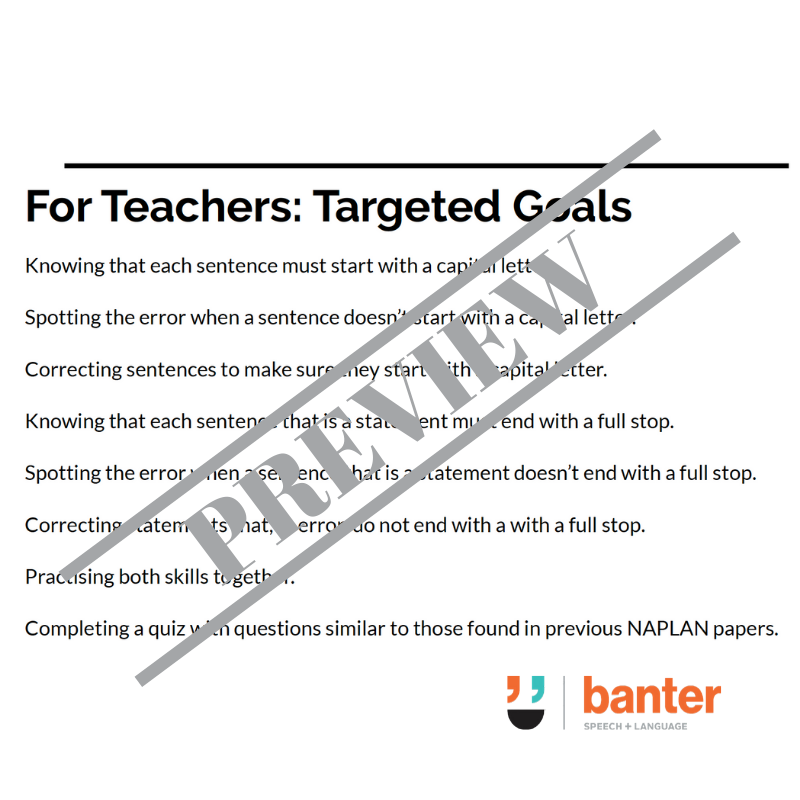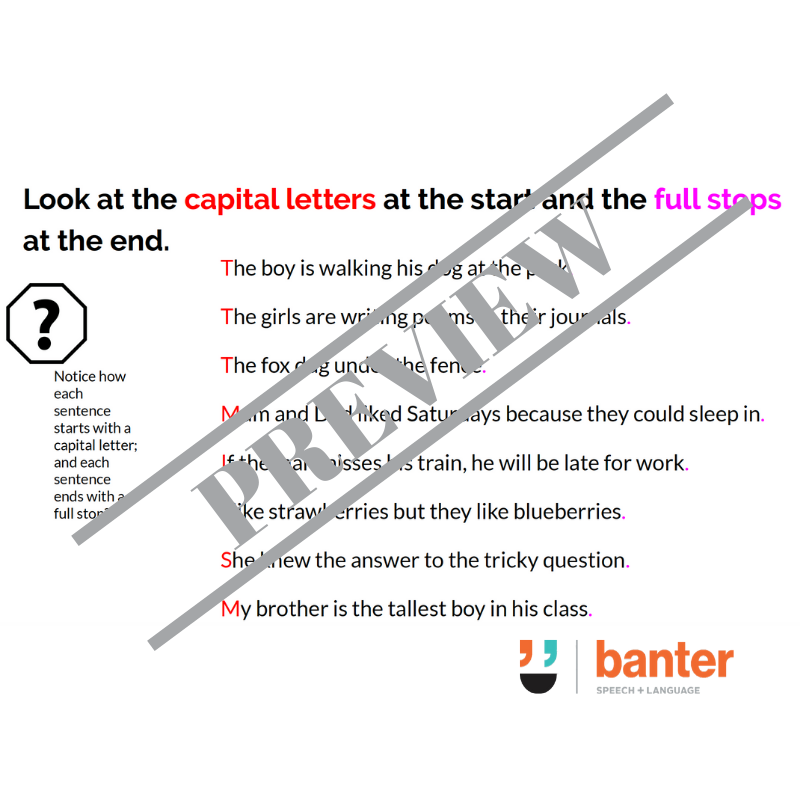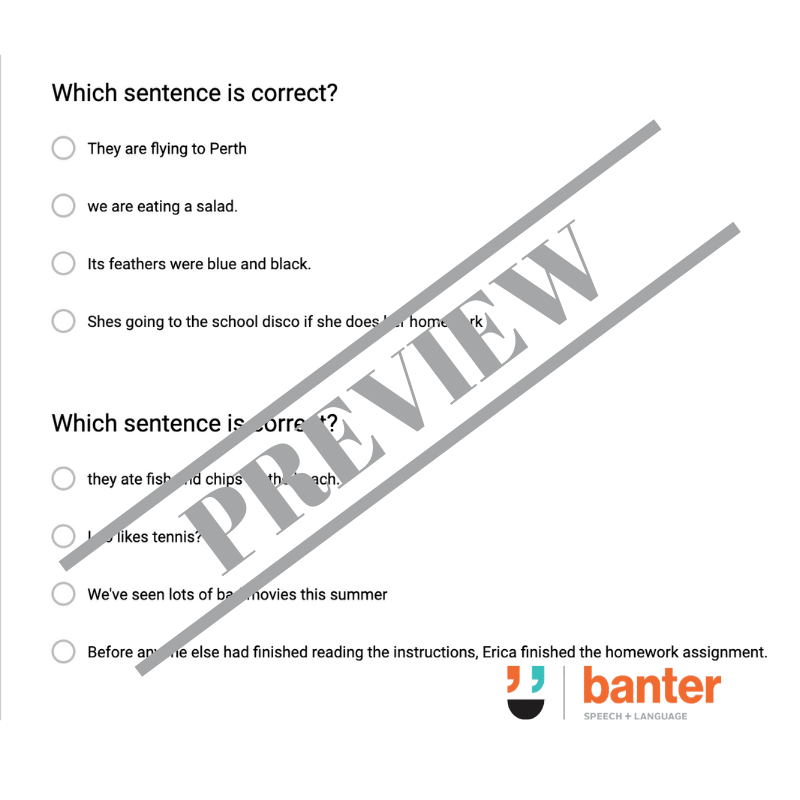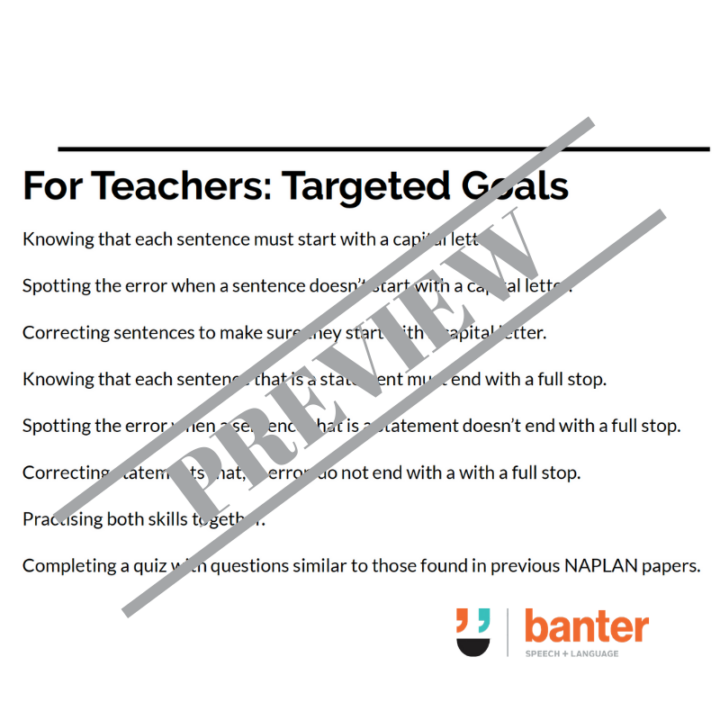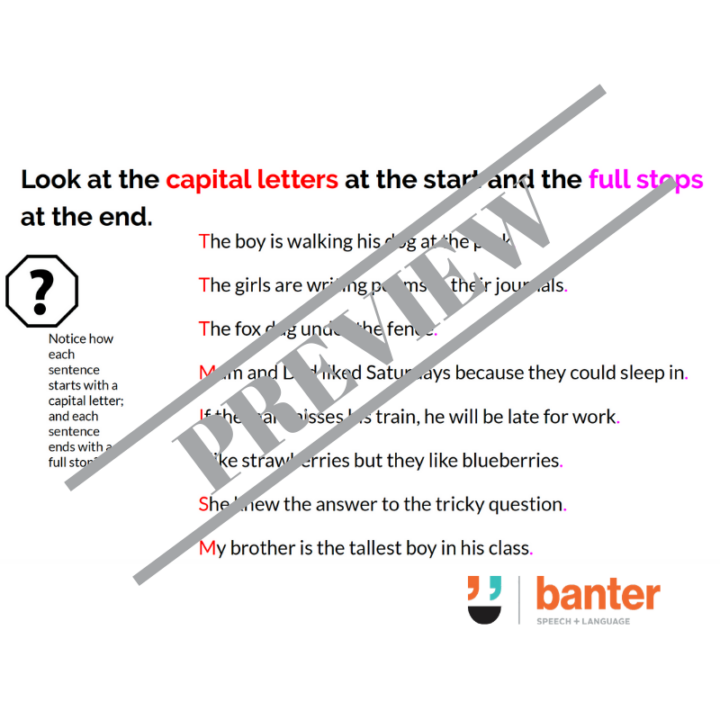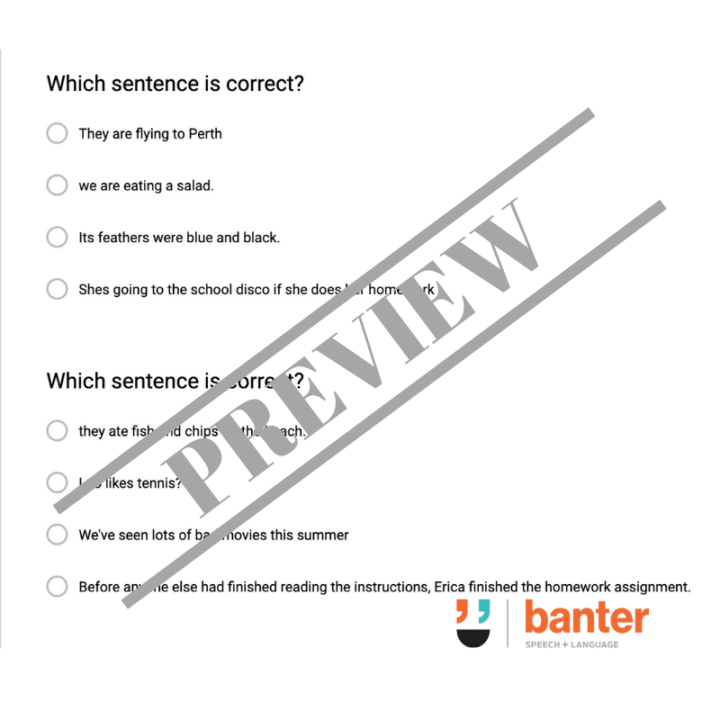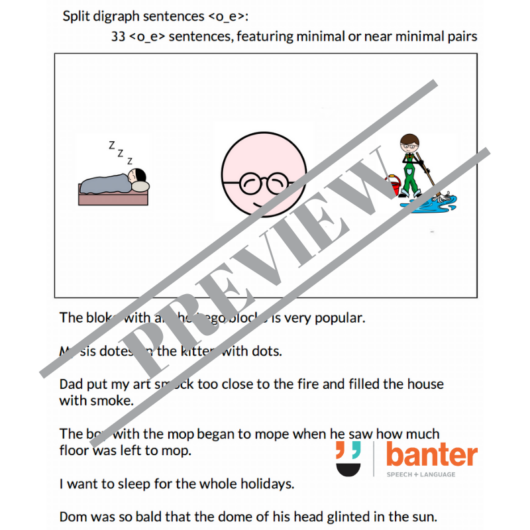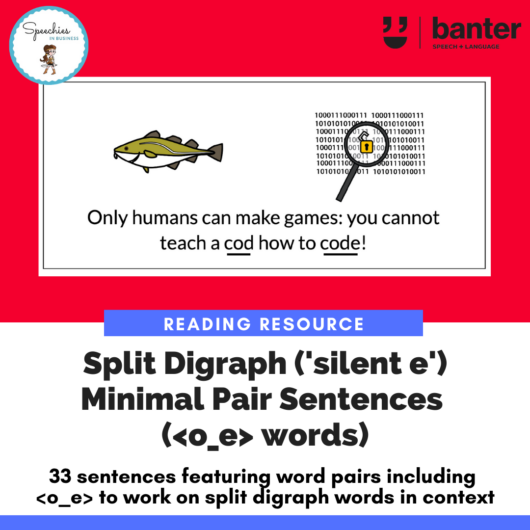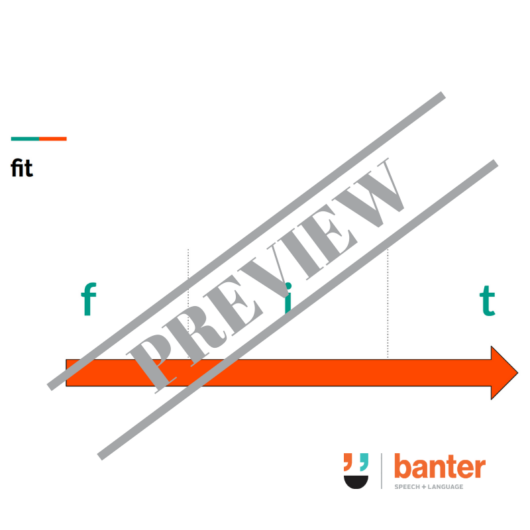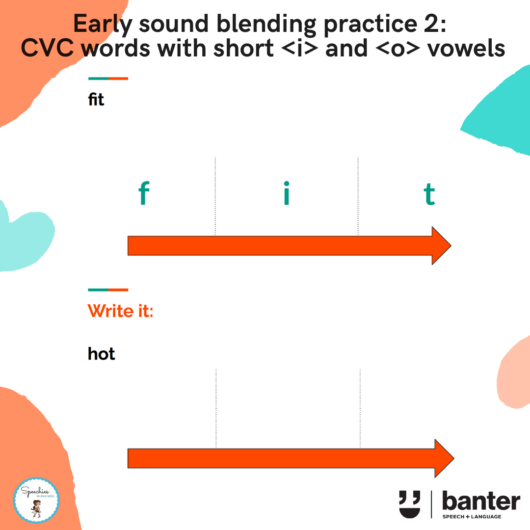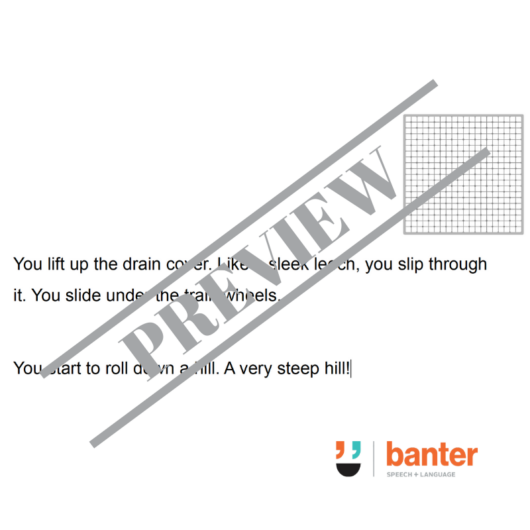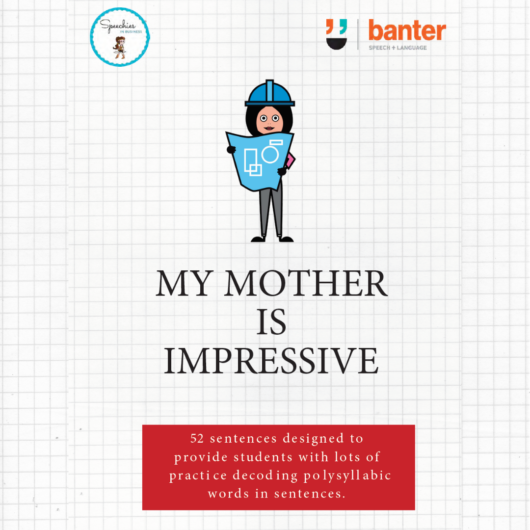Description
Pack 1. A sentence starts with a capital letter. A sentence that is a statement ends in a full stop.*
Australian governments test the literacy and numeracy of Australian students. In literacy, one of the main areas tested is Language Conventions. Language Conventions include grammar, and punctuation as well as spelling.
Two Language Conventions that are tested frequently are:
-
starting sentences with a capital letter; and
-
ending statements with a full stop.
These sound simple. Yet, frequently, students make mistakes in questions asking them to spot or correct errors in the use of these skills.
In this Teach-Practice-Test slide pack, we do nine key things:
-
Set out the teaching goals for teachers.
-
Set out key class expectations to help children to focus.
-
Explicitly teach the skills, including the meaning of “sentence”, “statement”, “capital” and “lower” case letters, and full stops.
-
Explain and demonstrate why the skills are necessary – both for the test and (more importantly) for real life.
-
Give correct model examples, demonstrating the skills.
-
Provide non-examples: sentences with “mistakes” in them, to train students to spot errors.
-
Practice spotting and fixing errors in the use of these skills, including at sentence, paragraph and narrative levels.
-
Include an online (and printable), multiple choice quiz with NAPLAN-style questions testing the skills.
-
Link to further resources and information about language conventions.
Written by Australian speech-language pathologists with a special interest in helping school-age students to thrive, this resource recognises that some students need extra help with their grammar and punctuation, including:
-
some students with developmental language and other learning disorders;
-
some students who are learning English as a second language;
-
some students who might feel a bit worried about the tests; and
-
some students from low socio-economic or high risk backgrounds who may simply not have had much exposure to printed texts and the language conventions.
The slides do not require any prior knowledge, and are therefore suitable for people with limited technical knowledge of grammar and punctuation conventions.
We’ve worked hard to make these resources as accessible and inexpensive as possible. They can be downloaded as PDFs and Google Slides. The slides can be used one-to-one, in small groups, and in whole class instruction. We’ve also made separate packs for each key skill, so you only need to download what’s needed to help the student or students in question.

